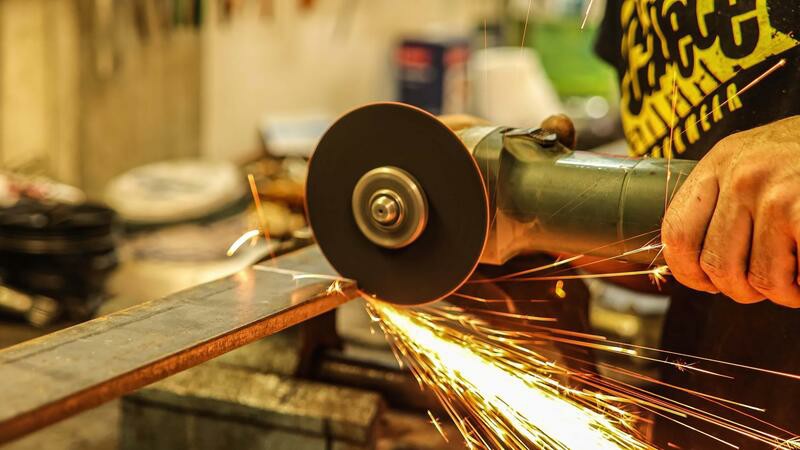The Comprehensive Guide to Abrasive Wheels: Types, Applications, and Safety Insights
Abrasive wheels are an integral part of various industries, including construction, automotive, and manufacturing. Understanding the different types of abrasive wheels, their specific applications, and associated hazards is critical for ensuring workplace safety. This comprehensive guide will delve into the various categories of abrasive wheels, highlight their uses, discuss the risks involved, and stress the importance of proper training and certification. Let’s explore the world of abrasive wheels with a focus on their relevance in major Irish cities like Dublin, Cork, Galway, Limerick, and Waterford.
Types of Abrasive Wheels
Abrasive wheels can be broadly categorized into three main types:
- Cutting Wheels: Used primarily for slicing through materials like metal, stone, or concrete. They are thinner than grinding wheels and produce less heat during cutting.
- Grinding Wheels: Thick and designed for removing material from surfaces. Grindings wheels are versatile and used in metalworking and woodworking.
- Polishing Wheels: Used for achieving a fine finish on surfaces. Polishing wheels can be made from various materials, including cloth and foam, and are essential in automotive detailing and metal finishing.
Abrasive Wheels Applications Across Industries
Understanding the applications of various types of abrasive wheels helps in selecting the right tool for the job. Here’s a breakdown:
1. Cutting Wheels
- Application in construction for cutting tiles and metals.
- Essential in fabrication shops for sections of steel and similar materials.
- Used in plumbing to cut pipes and fixtures.
2. Grinding Wheels
- Commonly utilized in automotive repair to reshape and grind down parts.
- Instrumental in metalworking for producing precise shapes and finishes.
- Found in woodworking to contour edges and surfaces.
3. Polishing Wheels
- Used in automotive detailing for a high-gloss finish on car surfaces.
- Essential in jewel crafting for polishing precious metals and stones.
- Valuable in manufacturing industries requiring a flawless surface finish.
Specific Risks Associated with Each Type
While abrasive wheels are invaluable, they pose several risks. Understanding these hazards helps in mitigating them:
Cutting Wheels
- Wheel Breakage: The high rotation speeds can lead to catastrophic failures if not handled properly.
- Kickback: Improper technique can cause sudden movements, which may injure the operator.
Grinding Wheels
- Overheating: Prolonged use can cause the wheel to overheat, risking cracks and subsequent breakage.
- Noise Hazards: Grinding operations often produce excessive noise, leading to hearing loss.
Polishing Wheels
- Dust Generation: The process can produce dust that is hazardous to respiratory health.
- Injury from Material and Tools: Improper handling can lead to cuts and scrapes.
The Importance of Proper Training and Certification
To ensure safety in the workplace, certified training in the safe handling of abrasive wheels is essential. Here are some key benefits of undertaking an Abrasive Wheels training course:
- Understanding of Equipment: Trainees learn how to properly inspect, mount, and operate abrasive wheels.
- Awareness of Hazards: Training emphasizes the potential risks associated with various wheel types and how to mitigate them.
- Regulation Compliance: Proper training ensures adherence to Irish safety regulations, reducing the likelihood of accidents and penalties.
- Hands-on Practice: Many training courses, including those available in Dublin and Cork, offer practical sessions for a better learning experience.
Available Abrasive Wheels Courses in Ireland
If you are located in Dublin, Cork, Galway, Limerick, Waterford, or other major cities in Ireland, several accredited institutions provide abrasive wheels training. Here are some popular options:
- Abrasive Wheels Training Dublin: Offers comprehensive courses for construction and manufacturing sectors.
- Abrasive Wheels Certification Cork: Focuses on understanding wheels and safe practices for machinery use.
- Abrasive Wheels Online Course: Flexible training options are available for busy professionals.
- Abrasive Wheels Safety Course Limerick: Covers all safety regulations essential for compliance.
- Abrasive Wheels Certification Waterford: Aimed at both new and experienced workers operating cutting and grinding tools.
Conclusion: Take Action for Workplace Safety
In conclusion, a deep understanding of the different types of abrasive wheels and their applications is crucial for any professional working with these tools. The associated risks cannot be overlooked, and ensuring proper training and certification is the best way to prevent accidents. We encourage all businesses and individuals in Dublin, Cork, Galway, Limerick, Waterford, and beyond to enroll in certified Abrasive Wheels courses to bolster workplace safety and compliance. For enquiries, feel free to reach out to us at [email protected].



 349,500 Offered Certificates
349,500 Offered Certificates
 24/7 Online Training
24/7 Online Training
 Money Back Guarantee
Money Back Guarantee
 Fully Accredited Courses
Fully Accredited Courses
